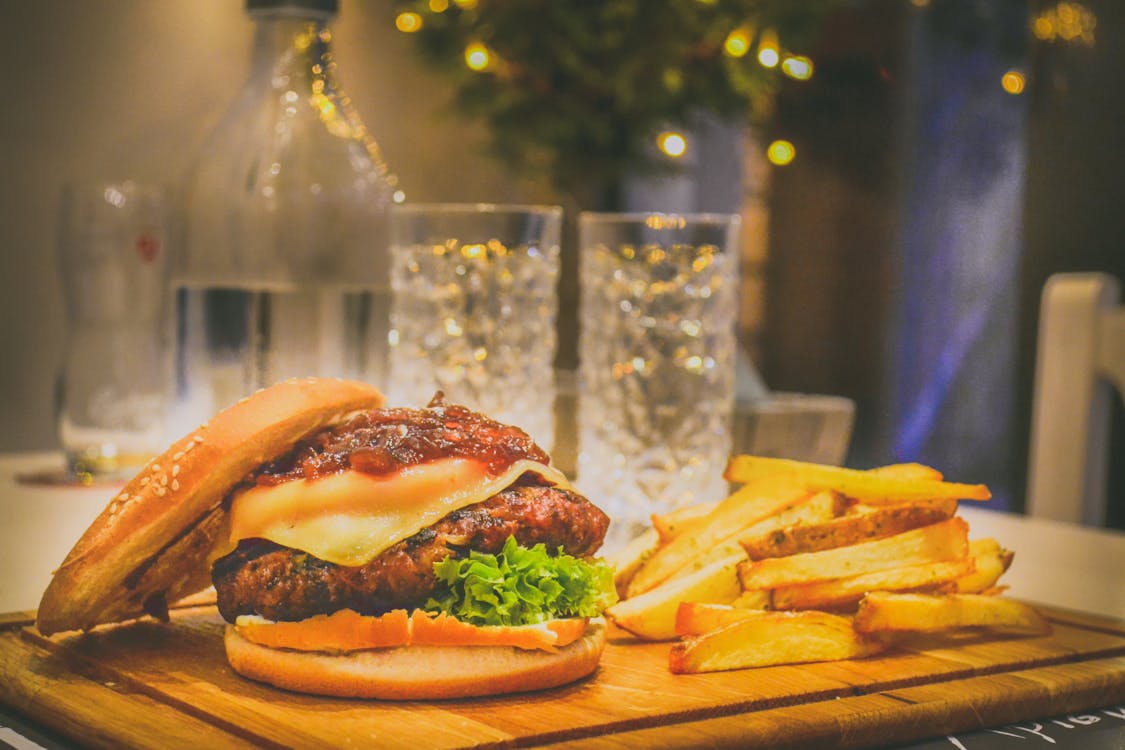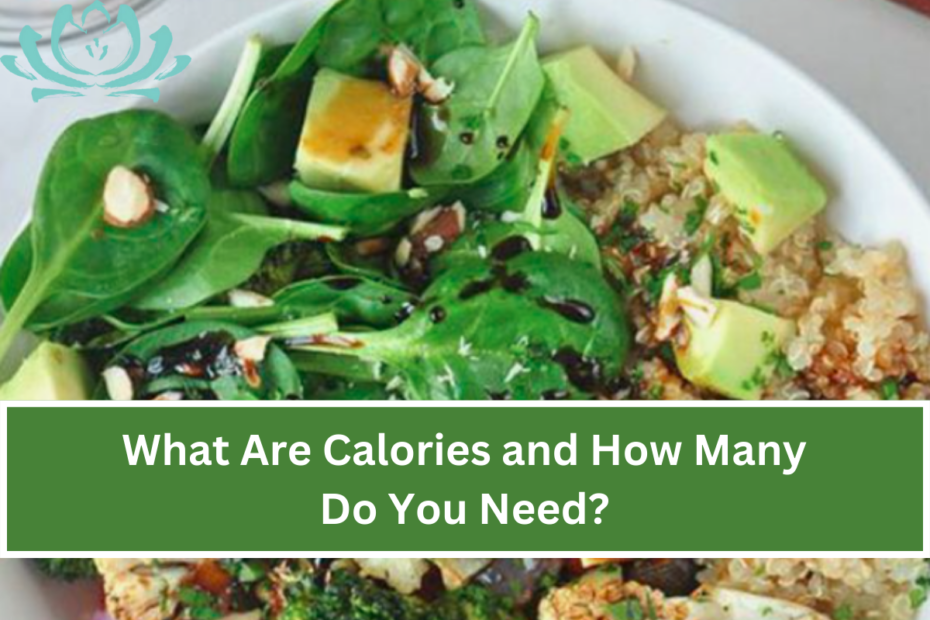What Are Calories and How Many Do You Need:- Food labels, restaurant menus, recipe blogs, food monitoring apps, and news headlines all reference calories. You may wonder why calories matter after all the talk. What are calories and how do they work? Maybe you know what a calorie is but don’t know how many to eat daily. Come learn more about calories, no matter your level. This article defines a calorie, discusses how to calculate your caloric intake, the relationship between calories and body weight, and calorie counting.
What Are Calories and How Many Do You Need?
Understanding Calories
- Every time you sit down to enjoy a meal, each food item and beverage contains energy locked away in chemical bonds. Your body metabolises food and drink to release energy. Your cells then use this energy to power survival tasks.
- To measure the energy absorbed and consumed from food and drinks, we use a unit called a calorie. Thus, a calorie is an energy measurement standard.
- Here’s a little scientific background you may be unaware of. The National Library of Medicine defines “calorie” as the energy needed to raise 1 gramme of water by 1 degree Celsius. Kilo calories, a unit of 1,000 calories, are used to measure energy in food and drink.
- The kcal is the most suited unit of measurement for food and beverages since there is a huge quantity of energy stored in their molecules. One medium banana has 105 kcal, which is easier to say than 105,000. We say a banana has 105 calories because we use “calories” to mean “kilocalories.”
Carbohydrates
- Your digestive tract converts carbohydrates into glucose, the main fuel for your brain, red blood cells, and neurological system. Simple or complex carbohydrates depend on their sugar molecule count.
- Simple carbs like table sugar and fruit juice can raise blood sugar quickly but are readily broken down and used as energy. Whole fruits include simple carbohydrates. However, dietary fibre in whole fruit slows sugar digestion.
- Unrefined whole grains, legumes, and veggies have complex carbs that break down slowly, delivering longer-lasting energy. Each gramme of carbohydrate produces 4 kcal.
Fats
- According to a 2019 Advances in Nutrition article, dietary fats protect important organs, insulate the body, produce hormones, and help absorb vitamins A, D, E, and K. They can also be broken down for energy. Fats are more dense and store more energy than carbs, the body’s main energy source.
- Fats are the body’s principal long-term energy store. Excess calories are stored as fat. Fat is the most energy-dense macronutrient, giving 9 kcal per gramme. Brisk walks and bike rides benefit from fat’s higher energy content. Butter, eggs, fatty salmon, avocado, oil, almonds, and seeds are high in healthy fat.
Protein
- Protein can provide energy, but the body prefers to use it to repair tissues, synthesise immune-protective antibodies, manufacture enzymes, hormones, maintain pH, and transfer nutrients in between cells. This means protein is rarely used for energy.
- First using carbs and fats as fuel saves protein for its key tasks. The UC Davis Library advises eating enough carbohydrates and lipids to prevent protein from being turned into energy.
- Protein provides 4 kcal per gramme if carbs and fats are insufficient. Protein-rich foods include meat, eggs, dairy, legumes, nuts, and seeds.
How many calories do you need?
- The 2020-2025 Dietary Guidelines for Americans recommend 1,600 to 3,000 kcal per day for adults aged 19–59. Adult females need 1,600–2,400 kcal per day, while adult males need 2,000–3,000. The ideal calorie intake is 45% to 65% carbohydrates, 20% to 35% fats, and 10% to 35% protein. For your unique caloric demands, consider the following parameters.
Basic Metabolic Functions
- Life-sustaining metabolic activities require a minimum number of calories. The basic functions are respiration, circulation, cell formation, protein synthesis, nutrition processing, and ion transport. Your basal metabolic rate is the least number of calories needed for these activities.
- According to a 2019 Encyclopaedia of Animal Cognition and Behaviour article, BMR accounts for 60% to 75% of your body’s energy expenditure. BMR is affected by age, height, weight, body size, composition, temperature, climate, sex, and hormones. Thus, everyone has different caloric needs.
Also Read:-Best Foods For A Healthy Brain and Improved Memory

What Are Calories and How Many Do You Need?
Exercise
- Exercise is also crucial for energy expenditure. Physical activity type, duration, frequency, and intensity affect calorie demands. Regular exercisers need enough energy to fuel and sustain muscle mass. Muscle-rich people burn more calories faster. Inactive people with less muscle burn fewer calories. Strength training increases calorie burn.
Other Considerations
- Life changes affect your calorie needs too. Pregnancy requires greater energy for baby growth. The American College of Obstetricians and Gynaecologists recommends 340 to 450 more calories in the second and third trimesters.
- The opposite may be true as we age. Late-life calorie demands may decrease due to less physical activity and muscle loss.
- Thus, keeping muscular mass as you age is crucial. Certain medical disorders might also affect calorie needs. The calories you get from food may also depend on your gut bacteria.
- Meeting with your primary care practitioner or a qualified dietician is the best approach to determine your caloric needs throughout life.
Meaning of Food Calories?
- Though some foods have the same number of calories, not all calories are made equal. When calculating calories, consider a food’s complete nutrient content.
Calorie-dense vs. nutrient-dense
- Some calorie-dense meals have little nutrients and many calories per serving.
- The American Heart Association says these foods are high in saturated fat, added sugars, and sodium. Pastries, cakes, confectionery, sugary drinks, fried foods, and processed meats are nutrient-poor.
- Alternatively, nutrient-dense meals have more vitamins, minerals, fibre, and phyto chemicals but less calories.
- Fruits, vegetables, whole grains, legumes, nuts, seeds, dairy, seafood, and unprocessed lean meat are nutrient-rich. These foods give healthful nutrients.
Calories and Weight: What’s the Connection?
- Caloric intake is important for weight management, among other aspects. To keep a constant weight, you must consume as many calories as you burn through metabolism and activity. If you want to reduce or gain weight, remember this.
Weight Loss
- Having fewer calories than you expend helps you lose weight. Reducing calories or burning more calories through exercise can create a calorie deficit. Your body uses fat for energy when you eat less. Weight loss happens because fat is the main fuel.
- Losing weight isn’t always easy. A 2018 Obesity article found that restricting calories slows metabolism and shifts hormones to conserve energy and prevent excess weight loss. So, calorie deficits are simply one weight management element.
Weight Gain
- When your calorie intake exceeds your calorie burn, you gain weight. To acquire weight, you must eat more calories and exercise to build muscle.
- Five to six meals throughout the day may help you meet your calorie needs. To gain weight healthily, prioritise high-calorie, high-nutrient foods.
1. Definition of calorie deficit.
- A calorie deficit happens when you eat less than you burn. Reduce your calorie consumption or burn more calories through exercise—or both.
2. Definition of calorie surplus.
- When your calorie intake exceeds your calorie burn, you gain weight.
3. How many calories should adults consume daily?
- Adults 19–59 should consume 1,600–3,000 calories daily, according to the Dietary Guidelines. Adult females need 1,600–2,400 calories per day, while adult males need 2,000–3,000.
4. What are empty calories?
- According to the AHA, empty-calorie foods are rich in calories and low in nutrition.
5. How many calories should you eat daily to lose weight?
- A calorie deficit is needed to lose weight. Cut 500 calories daily as a rule of thumb. Losing weight isn’t always easy.
- Your metabolism may slow down if you restrict calories too much to conserve energy and prevent weight loss. Thus, calorie deficits are simply one factor in weight loss.
If you like this article about What Are Calories and How Many Do You Need? Please share this article with your friends and family members.

